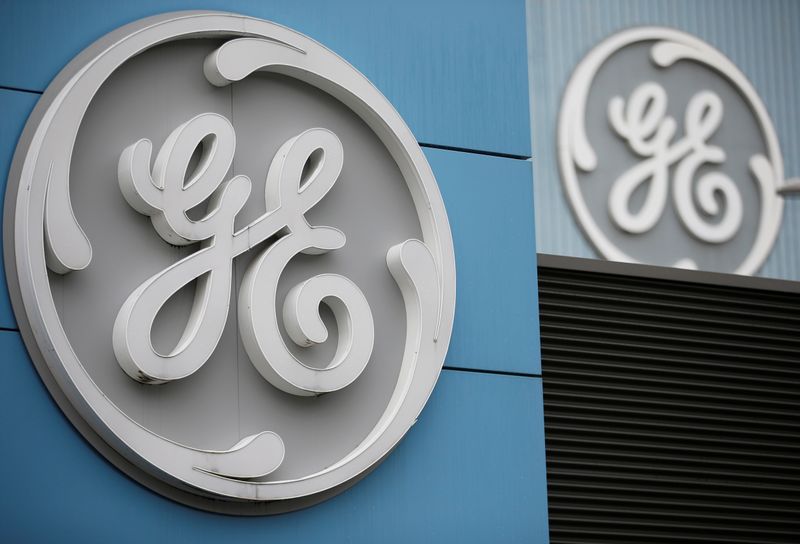By Rajesh Kumar Singh and Rachit Vats
(Reuters) - General Electric Co (N:GE) on Wednesday unexpectedly reported a quarterly profit and a positive cash flow on the back of cost cuts and improvements in its power and renewable energy businesses, sending its shares 10% higher.
The Boston-based industrial conglomerate reported a free cash flow of $514 million from industrial operations in the third quarter, compared with an outflow of $2.1 billion in the previous quarter and Refinitiv's average analyst estimate of an outflow of $876 million.
GE said it expects industrial free cash flow to be at least $2.5 billion in the fourth quarter and positive in 2021.
Adjusted profit for the quarter came in at 6 cents per share compared with Refinitiv's average analyst estimate of a loss of 4 cents per share.
The company's shares, which have fallen about 40% since the beginning of 2020, were up about 10.3% at $7.83 in morning trading.
"We are managing through a still-difficult environment with better operational execution across our businesses," said Chief Executive Lawrence Culp.
Culp is trying to turn around the company by improving free cash flow and cutting debt. However, the coronavirus pandemic has hit those efforts by hammering GE's aviation unit, usually the company's most profitable and most cash-generative segment.
In response to the pandemic-induced turmoil, GE is cutting $2 billion in costs and aiming to generate $3 billion in cash savings. The company said it has, thus far, realized 75% of its target.
Chief Financial Officer Carolina Dybeck Happe told investors on an earnings call that the company has thus far reduced its headcount by more than 15,000 and aims to have 20,000 fewer employees by the end of 2020 as part of its cost-cut drive.
Revenue at both power and renewable energy businesses recovered from the last quarter even as orders saw a double-digit dip. Revenue at GE's aviation unit fell an annual 39% in the latest quarter.
Analysts at Gordon Haskett Research Advisors said the earnings report would "reinforce the messaging that GE has fundamentally bottomed."
However, a resurgence in new COVID-19 cases has raised the risk of prolonging the downturn in the aviation industry, which has led to a sharp cutback in maintenance spending by airlines, hitting both large and small suppliers.
This has compounded the troubles at GE's aviation unit, which makes engines for Boeing Co (N:BA) and Airbus SE (PA:AIR) and had already been reeling from the grounding of Boeing's 737 MAX planes.
Happe said aviation orders more than halved during the quarter, with a 60% decline in both commercial engines and commercial services.
Boeing on Wednesday said it would take three years for passenger travel to return to pre-pandemic levels.
GE said an annual test of reserves in its legacy insurance business resulted in a "small positive margin" with no impact to earnings.
Mounting losses related to the company's run-off insurance operations - a portfolio of about 300,000 long-term care insurance policies it holds in its GE Capital unit - forced the company to take a $6.2 billion charge in 2018 and put aside $15 billion in reserves to shore it up.
The insurance charge also brought scrutiny from securities regulators. Earlier this month, GE warned that it could face a civil action for possible violations of securities laws over its accounting for the insurance business.

GE said it has reserved $100 million to cover potential penalties for all the accounting investigations. Happe said the amount was "appropriate" to cover the probes.